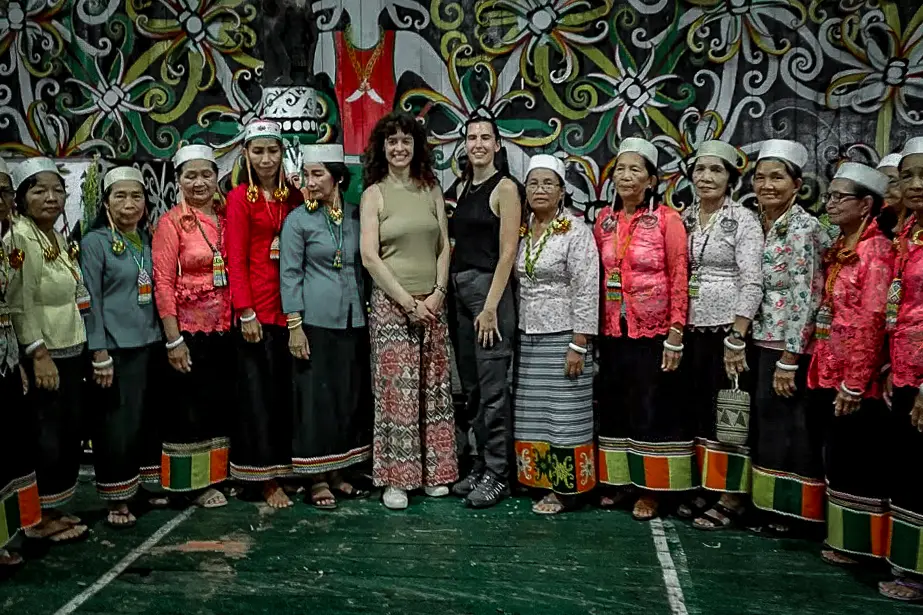Dayak Women of Sei Bawang: Weavers, Dancers, and Forest Guardians
 Deep in East Kalimantan, in a small village called Sei Bawang, lives a Dayak community that still holds on to the traditions of their ancestors. One of the most striking things about this village is the role of women in everyday life and in preserving cultural heritage. Dayak women in Sei Bawang are not just mothers or homemakers. They are skilled weavers, ceremonial dancers, knowledge keepers, and guardians of the forest.
Deep in East Kalimantan, in a small village called Sei Bawang, lives a Dayak community that still holds on to the traditions of their ancestors. One of the most striking things about this village is the role of women in everyday life and in preserving cultural heritage. Dayak women in Sei Bawang are not just mothers or homemakers. They are skilled weavers, ceremonial dancers, knowledge keepers, and guardians of the forest.On August 5th, 2023, Sei Bawang held its very first cultural festival. It was a proud and emotional moment for the whole village. The festival was a chance to share their identity through traditional dances, handwoven fabrics, local food, and rituals. Most importantly, it was a time to pass these traditions on to the younger generation.
What made this first festival even more special was the arrival of two women tourists from Italy, Livia and Alessia. They were the first international guests to ever visit the village. Their presence was welcomed with open arms by everyone, but it was the Dayak women who made them feel especially at home. From day one, Livia and Alessia were embraced by the community. They stayed in local homes, joined daily activities, and were guided by the village women in weaving, cooking, and dancing.
In Sei Bawang, weaving is a part of life. Girls learn from a young age how to weave using the traditional ikat technique. It’s a slow, detailed process that requires patience and deep focus. The patterns they create are not just decorative. They tell stories about the forest, ancestors, and spiritual life. These textiles used to be made only for rituals and special occasions, but today they also help support the community economically.
The women are also central to all cultural events. They lead the dances, prepare offerings, and organize traditional ceremonies. Their movements in the dances are slow, steady, and meaningful. Each gesture is a way to honor nature, the spirits, and the people who came before them.
Beyond their cultural role, the women in Sei Bawang are also keepers of forest knowledge. Many of them know which plants are used for healing and how to find them in the forest. One example is the bejaka root, a strong climbing plant believed to boost the immune system, improve blood circulation, reduce fatigue, and lower blood pressure naturally. It only grows in untouched tropical forests, and local women are the ones who know how to identify and use it.
Livia and Alessia were fascinated by this deep knowledge. They wrote down the names of plants, recorded stories, and even joined in making traditional herbal mixtures. They said this wasn’t just travel, It was real learning and connection. It wasn’t about seeing the forest; it was about living with the people who call it home.
Their visit also helped the women of Sei Bawang see that their culture is valuable to people from outside the village. It gave them a sense of pride and reminded them that their knowledge and traditions are worth preserving.
Even after the festival, the connection continued. Livia and Alessia helped in the fields, collected medicinal plants, learned to cook with local ingredients, and spent hours sitting on verandas with the women, weaving and sharing stories. There was no line between guest and host. Everything was shared with a natural sense of family and warmth.
From this experience, it’s clear that the women of Sei Bawang are central to their community’s identity. They are not just part of the culture, they carry it forward. They protect the forest, preserve traditional knowledge, pass on stories, and at the same time, open their hearts to the world.